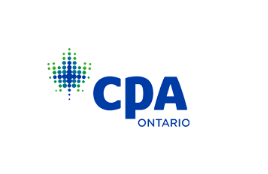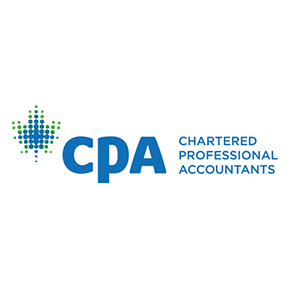This, do not miss, workshop gets to the heart of what matters most in our daily interactions with colleagues, clients, family and friends… emotion. Our emotional abilities are learned and can be improved with knowledge and practice.
This highly successful seminar brings participants to new insights about themselves, their colleagues, and their customers. Learn to assess the interpersonal style of others, and learn how to maximize your communication approach to enhance effectiveness and persuasiveness.
To protect our health, more and more companies are asking employees to work remotely for the foreseeable future. In fact, many organizations are considering a permanent shift to work-from-home for many roles. As a leader, you can no longer evaluate how things are going by walking around the office, checking in on staff and holding impromptu problem-solving meetings. Managing a remote team presents many new challenges ranging from technical requirements to how to stay connected and how to monitor and produce results.
Understanding the Basis for Employee Motivation
To maximize employees’ motivation, one must be able to recognize the difference between employees who are highly motivated and those who are not. It is also crucial to know the difference between an unmotivated and an incompetent employee because each scenario may call for different solutions. Finally, managers need to understand that all employees are motivated to satisfy specific needs and that they may differ widely on the particular needs they want to satisfy. Discovering those needs, and therefore being in a better position to motivate employees, depends largely on managers’ active listening skills and their capacity to put themselves in their employees’ shoes.
Managing Employees’ Perceptions of Fairness
One of the biggest “killers” of employee motivation is their perception that they are being treated unfairly. Managers have a huge role to play in managing these perceptions. Doing so well implies that managers must understand the different types of fairness that employees perceive in their workplace and which ones seem particularly important to manage. It is also important to realize that managing to ensure a fair workplace is necessary, but rarely enough to maximize employees’ motivation.
Managing to Maximize Employee Motivation
Motivating with money, even if done fairly, is rarely enough to maximize employees’ motivation. Most employees need to feel autonomous (in control) in how they do their work, that they are developing themselves and are more impactful as a result, and that their work goals contribute to a greater purpose. Providing such experiences to employees is sometimes challenging but can be done in many circumstances, provided that managers take the time to reflect and ask themselves and their employees a few key questions.
Join us for an illuminating program to view with new eyes the essentials of intercultural communication. Find out what the Harvard Business Review cited as the single most significant skill leading to career success. Leave with a new appreciation for generational differences and how we can thrive by tapping into our strengths.
How are you being perceived through email, text messaging or voice mail? Learn the simple to implement skills of organizing a one-way transmission to motivate another to pay full attention to your message. The organisational structure (when to say what) assists tremendously with comprehension and retention of even the most complex of ideas. Impress all with your ability to simplify the complex, get to the heart of the matter, and motivate receivers to want to pay attention.
Are you submissive, aggressive or assertive? Find out where you fit and why assertiveness is the best way to achieve your goals. Learn the words to use, the secrets of body language, and how to interpret other’s behaviour to make positive assertiveness a productive force in your life.
Interactions at work with colleagues, supervisors, and technicians don’t always go as smoothly as we’d like. One’s ability to maintain control in difficult to control situations is the hallmark of excellent communication’s ability. Learn to communicate via email and telephone to promote cooperation and effectively resolve issues that are deemed difficult. Recognize that conflicts will happen in the workplace, our goal therefore is to be at our best when it’s most required of us. Learn to use your voice and rapport building skills to reduce tension, deal with emotion, and make for a more stress-free professional life.
To be at our best when we most need to be requires having the confidence and competence at recognizing potential problems and circumventing them before they escalate. Being assertive in clarifying expectations early in the engagement is essential.
This highly regarded course uncovers the often hidden motivations of why we act the way we do and provides practical, easy to implement strategies to turn negatives into positives and strengthen interpersonal relationships. We’ll explore the typical difficult interactions of your workplace and role play approaches that lead to improved outcomes.
What to wear? What’s the right look? Does this even fit? Is this right for the weather? What you wear, how you look, and how you carry yourself makes a bigger difference than most people realize. Over half of the impression you convey to others is based on appearance. Be sure to convey the appropriate message by presenting your best professional self. The four major image appearance components; hair care, skincare, colour analysis, and wardrobe development are reviewed in depth. Participants will learn the “must-knows” and the “never do’s” in this informative, entertaining, and interactive seminar.
Instead of directing your way through interactions that may “win the battle, but lose to war,” learn to maintain an open and positive climate of supportive communication. Create and maintain your reputation as a fair-minded leader who’s not afraid to speak up and not afraid to listen. Learn the importance of seizing the opportunity to change your mind when given good enough reason to do so. Uncover your often hidden motivations about how you lead in order to build on your strengths and minimize your shortcomings.
Conversing with your clients at the office, a conference, the golf club, or any other venue is always an opportunity to create and strengthen the relationship, or to inadvertently weaken it. It’s the conversations we have that build relationships. Understanding the ingredients of good conversation, knowing what to say and when, directing and redirecting the interaction, and being capable when it becomes difficult are the hallmarks of excellent conversation management. In this entertaining and interactive session, we’ll explore a pragmatic model of interpersonal effectiveness. We’ll increase our self-awareness, capitalize on the perceptual tendencies of others, and appreciate talk that includes and excludes. We’ll delve into the important elements of the conversational process: attitude, attendance and contribution. You’ll be given tips on putting your best foot forward, preventing conversational problems, and repairing interactions that do go astray.
In this fun and interactive workshop, you will be given tips on putting your best foot forward with non-verbal communication, effective introductions, table small talk, serving yourself at a buffet, dining demeanour and behaviours that will make you confident in any business social situation. You’ll learn the differences between attending larger group buffet venues and smaller dining situations.
Conversing with your clients at the dinner table is always an opportunity to create and strengthen the relationship, or to inadvertently weaken it. Understanding the ingredients of good conversation, knowing what to say and when, directing and redirecting the interaction, and being capable when it becomes difficult, are the hallmarks of excellent dining etiquette.
In today’s multicultural society, successful organizations recognize the importance of a diverse and inclusive workplace to promote employee engagement and wellness and enhance productivity. But a diverse workplace doesn’t necessarily mean an inclusive one. In our communications, we must consider diversity elements such as race, religion, gender identity, mental health, different perspectives and political views. Both managers and employees can contribute to a diverse and inclusive workplace.
An employee who resides in the top quartile of the employee engagement continuum is three times more likely to succeed than in the bottom quartile. Of publicly traded companies, more engaged organizations outperformed competitors by almost 20%. Employee engagement is one of the most significant determinants of profitability within a company’s control.
Based on the overwhelming research of the U.S. Gallup organization, this program uncovers the mind-set, and the easy to implement skills that lead to higher employee engagement.
We no longer live in a world where the paternalistic relationship between employee and employer exists. The company can no longer offer the traditional motivators of money, promotion, and job security- these are simply too scarce to go around. The new reality must engage through an implicit contract of mutuality where employees learn and grow, and have the confidence to take care of themselves even if the company can’t. The skills of validation, information, and participation are the underpinnings of the engagement premise that work satisfies human needs.
The relatively simple, and as a result consistently underestimated, power of: expectations, resources, opportunities, recognition, encouragement, purpose, progress, etc. have a (to put it mildly) profound impact on customer service, resignations, accidents, productivity, sick days, creativity, sales, and productivity.
Join us as we explore the practical strategies of engaging employees to their potential. Learn to spot the root causes of performance gaps and implement the appropriate interventions. Empower your employees by hearing their voices in a new light. Appreciate the power of a healthy, supportive communication climate in promoting growth and performance.
We all need to be aware of how others, especially clients, are viewing our behaviour. It’s no secret that clients and colleagues are using the behaviour they see to form their lasting impressions of you. Feel comfortable in conveying your best self by learning the why, when, where, and how of professional protocols. These “rules” of office behaviour are not restrictive; in fact, quite the opposite is true. Knowing what the expectations are and knowing how to meet them provides a foundation of confidence and composure that enables personal expression without worrying: “am I doing this right.”
Learn how to expand your listening capabilities and become a more effective communicator. Listening is a learned skill that typically has been ignored as such; consequently, it’s our worst communication skill. Learn to take in a greater amount of information, hear what’s not being said, and build relationships in this powerful session.
Professional communication is the cornerstone to supervisory success. This workshop, designed for Managers, will focus on the essential communication skills to be an effective communicator. We’ll explore, and practice, the skills of listening with intent, sending messages with clarity and persuasiveness, and supervising for success. Through small group interaction, self-diagnosis, case studies and skill practice, participants will learn the practical communications skills relevant to their workplace reality. Participants will learn to communicate more effectively with all levels of the company’s hierarchy: supervisors, peers, and subordinates.
Performance management is a key leadership skill, especially right now as many of us continue to work from home. It’s not just about doing an annual or semi-annual review; performance management is an on-going conversation that requires strong communication and coaching skills. This seminar will provide insights and tools on how to start and continue performance management conversations year-round.
Networking is the set of communication skills required to build relationships, inform others, and learn from and about co-workers and clients. Managing the impression you make and maximizing your ‘like-ability’ are the keys to making every networking opportunity consistently profitable. First impressions really are important. The way you greet people can set the tone for the entire interaction that follows. If you make a poor initial impression, you may spend the rest of your time overcoming it. In this fun and interactive workshop, you will be given tips on putting your best foot forward with the right handshake, effective introductions, and presenting and requesting business cards with confidence. You’ll learn the differences between interacting in a large group venue versus the requirements of a more intimate setting. You’ll master the principles of impression management by exploring perceptual tendencies, the ins-and-outs of small talk, and the subtleties of office diplomacy.
Do your presentations have the impact you intend? Are you unsure what information should be included in, or omitted from, your presentations? Does your delivery grab and hold your audience’s attention? Do your words motivate audiences to action? Your executive image can be either built or undermined by your presentation abilities. This highly successful workshop will enhance your presentation skills and give you the insights you need to project a confident executive image in any speaking circumstance. We’ll cover everything you need to know to deliver any presentation with clarity, persuasiveness, and confidence. This course is designed for professionals with an emphasis on organizing your thoughts and data for maximum impact, developing visuals to enhance your message, and projecting competence through body language and voice.
A universal perceptual tendency is to “judge a book by its cover.” We form lasting opinions based on what we see. In fact, over half of the impression you convey to others is based on appearance. The look of credibility, composure and professionalism must accompany the message for an audience or client to accept it. You must be believed to be heard, and we believe what we see.
Be sure to send the full message by visually presenting your professional credibility. This seminar is about attaining a professional presence that, in all circumstances, speaks well of you. Learn how your body language, dress and personal style impact the decisions others make of you and your ideas.
In this seminar, we introduce the professional personal brand concept with the purpose of encouraging all workers (receptionists to CEOs) to take control of their own careers. Unlike a personal brand which focuses on self-interested aspects of one’s private life, a professional personal brand is service-minded and is uncompromisingly focused on one’s value to others. Conventional wisdom of impression management asserts the importance of acting and dressing for success, as all of our observed actions shape expectations of future behaviours.
As the lines between professional and personal reputations become blurred, it is important to know how to leverage social media to one’s professional advantage and to avoid the reputation-destroying outcomes of politically incorrect tweets, inapt Facebook postings, and errant instant messages. In this seminar, you will learn to reclaim, recast, or renew your personal brand with a focus on professionalism. A professional personal brand honors the greater good one has accomplished for others and conveys one’s capacity to contribute value to your network of colleagues, clients, and customers.
This highly successful seminar brings participants to new insights about themselves, their colleagues, and their customers. Learn to assess the interpersonal style of others and learn how to maximize your communication approach to enhance effectiveness and persuasiveness.
This course allows team members to be more engaged with other teams and other members by learning more about what others do and how we impact one another. The course is a facilitated sharing session where we learn about:
- what we do
- how we do it, and
- how can we do better
We explore the roles and responsibilities of individuals and divisions; the principles that guide the organization; behavioural competencies required to succeed; best practices; and problems and solutions.
This program is designed to engage individuals in their work and the work of others. The research is compelling. According to the Gallup organization’s research: an employee who resides in the top quartile of the employee engagement continuum is three times more likely to succeed than in the bottom quartile.
Join us for an enlightening session that promises individual and team accomplishment in an atmosphere of sharing.
Time is money, the saying goes, and lots of it gets lost in disorganization and disruption. We also deal with a constant barrage of technology, people, and tasks that can contribute to that disorganization. Many people find that they flit from one task to another, trying to get everything done.
In this one-day workshop, you will learn how to make the most of your time by getting a grip on your workflow and office space, using your planner effectively, and delegating some of your work to other people.
Anyone who works at a desk knows the importance of good writing skills. This course is just what you need to write clear, concise business letters, memos, emails and reports. Professionally relevant activities and basic do’s and don’ts will have you writing like a pro as you discover the secrets to well-written sentences and learn how to quickly organize your thoughts.
Too much writing and too little time is the recurring challenge of the busy professional. Learning how to focus your main message and bring it to your readers’ immediate attention are the keys to fast and effective business writing.


